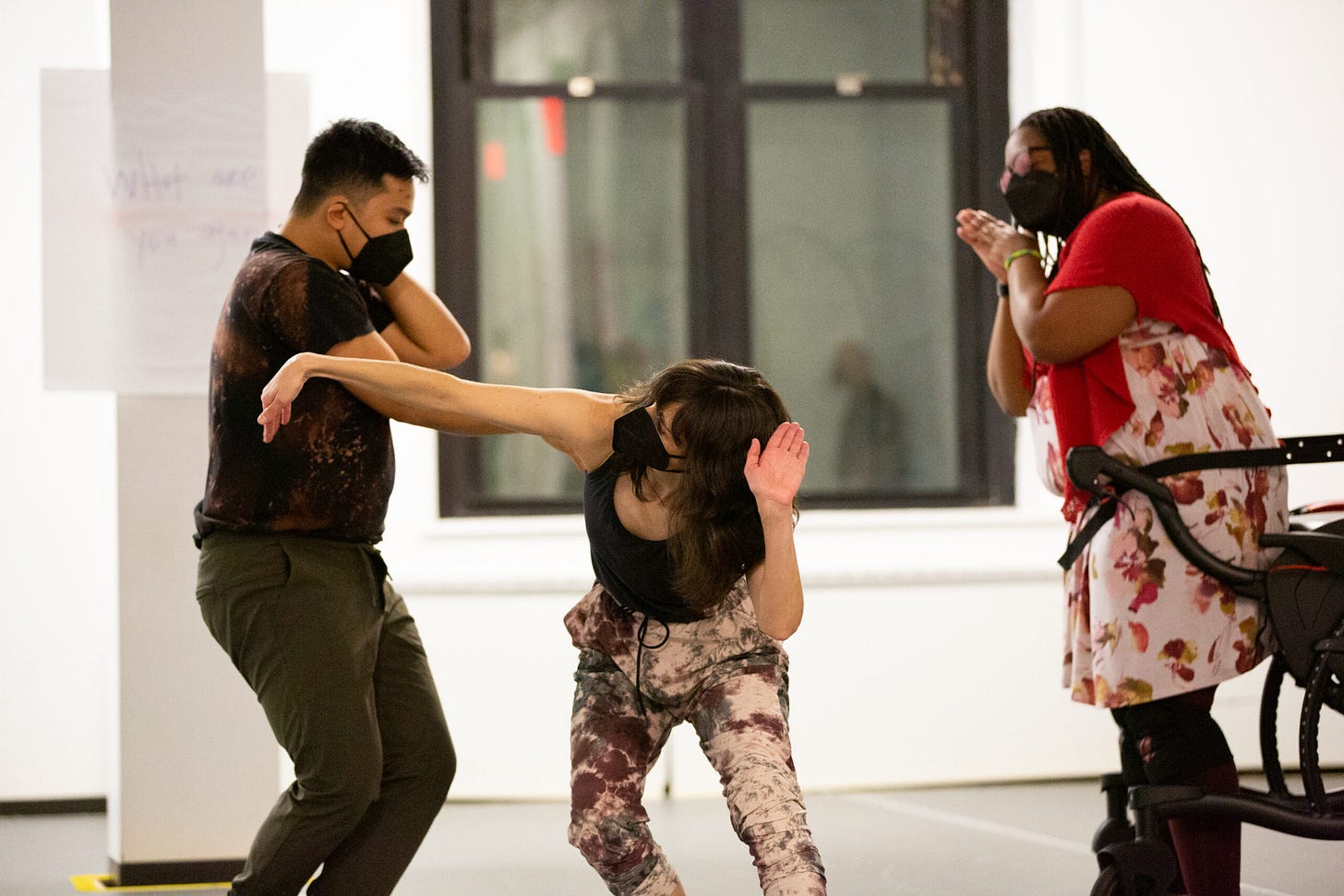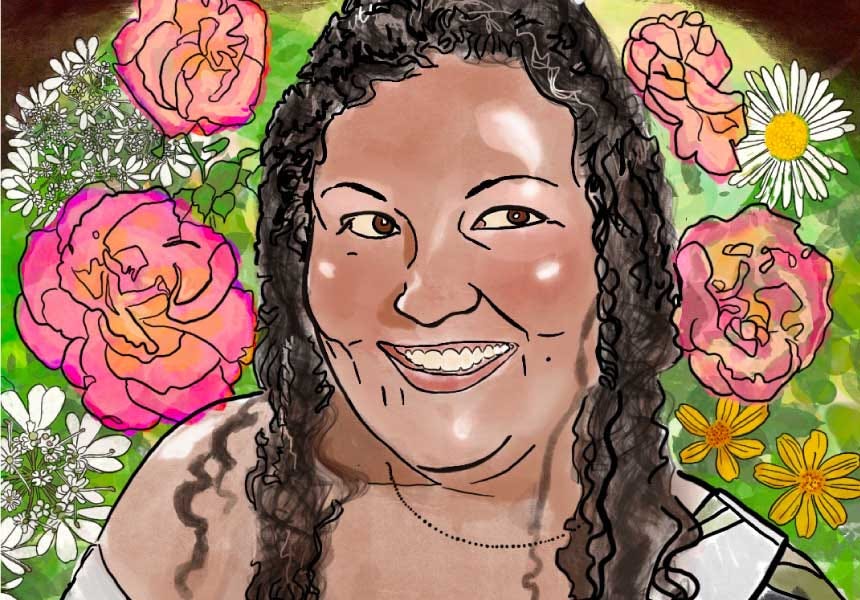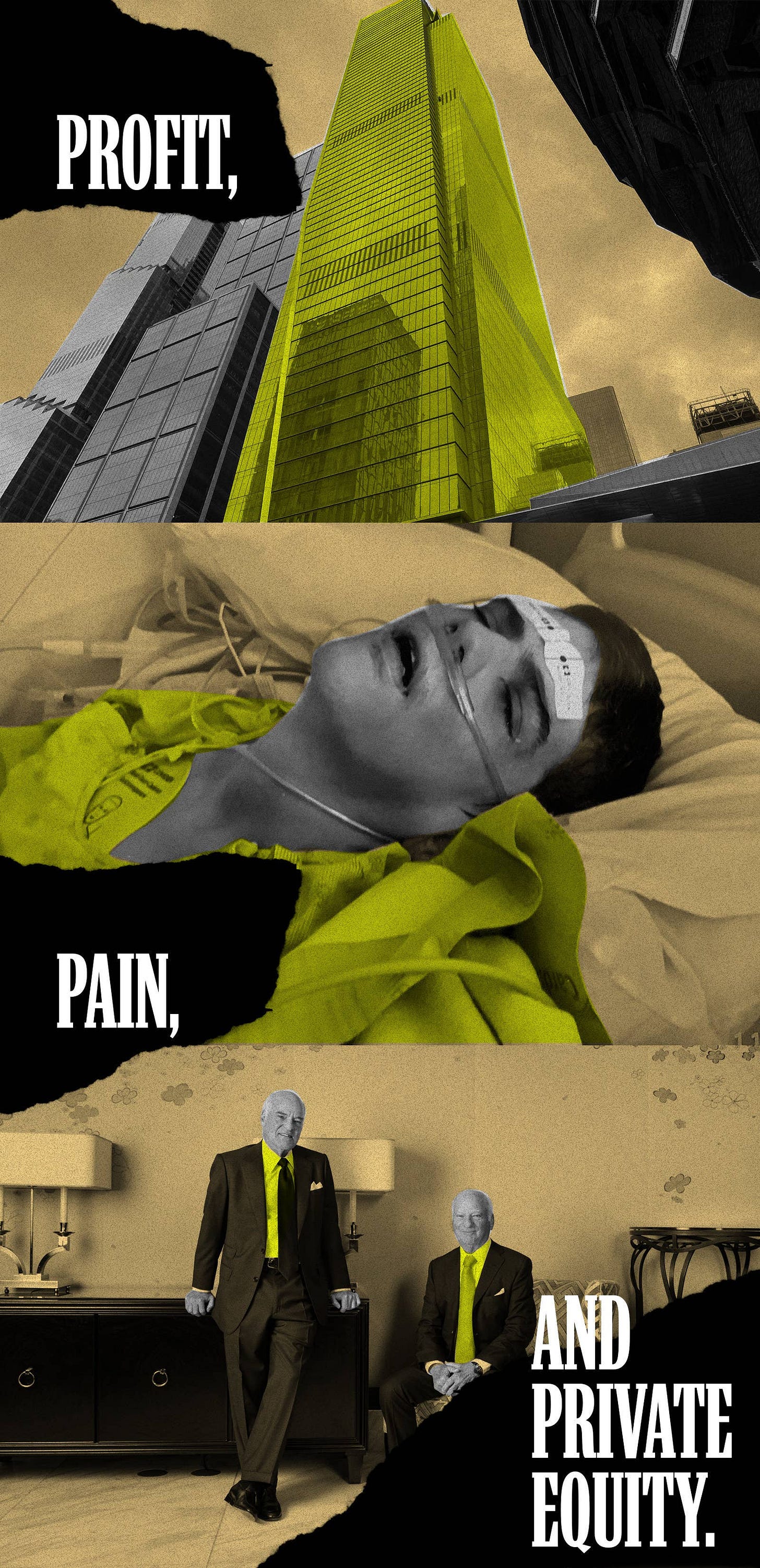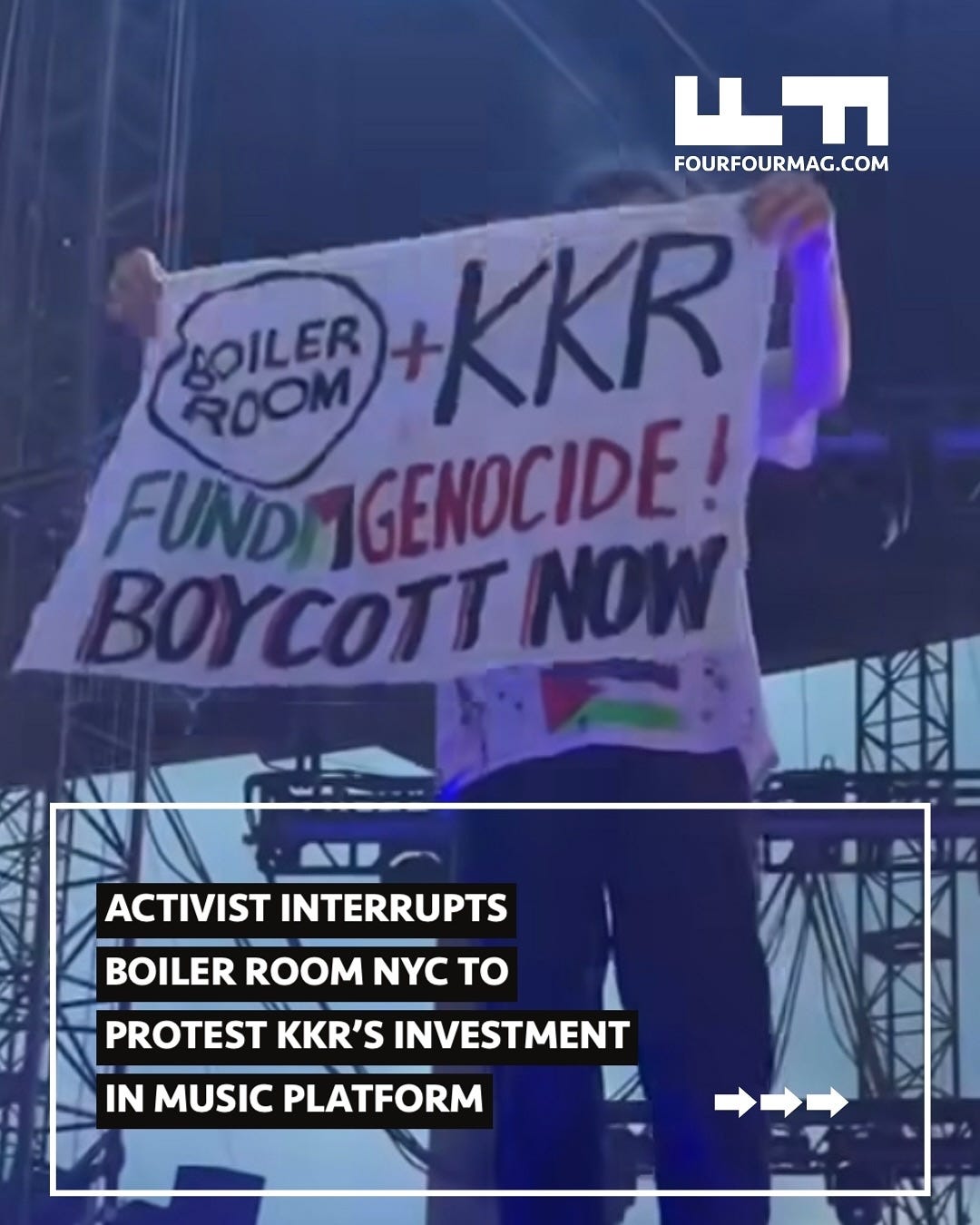Crip News v.195
New works, other news, calls, events, and a profile of a true villain, KKR.
Today I’m publishing the second post in a series on specific enemies of disability culture and organizing. You’ll find “Villain Profile: KKR” in the last section, under “Intensities.” Thanks for being here.
-kevin
NEWS
New Works
Artist and organizer Elisabeth Motley reports on a January 2025 convening of 13 multi-disabled dance artists called “ASSEMBLE: Co-Creating Disability Dance” for Jacob’s Pillow’s Dance Interactive platform.
Today, August 5, the first Vietnam Disability Fashion Show took place at the National Fine Arts Museum in Hanoi, featuring over 50 disabled models from across the country.
A new report, “The State of Disabled LGBTQI+ People in 2024,” authored by Mia Ives-Rublee, Casey Doherty, Haley Norris from the Center for American Progress (CAP) looks at data from 3,360 adults in the US gathered in the LGBTQI+ Community Survey conducted by CAP and the National Opinion Research Center (NORC).
Access:Horror, a film festival and industry summit celebrating “disability, genre cinema, and all that’s good in the world,” recently took place in NYC and online.
This is me, this is us is an Augmented Reality (AR) exhibition on view through October 31 in Broadgate Square in Coventry, UK, created by disabled artists from Art Riot Collective and Coventry University’s Disabled Staff and Carers Network.
In Other News…
Open Studios, recently founded by nondisabled gallerists Rachel Carle Cohen and David Fierman in NYC, seeks to capitalize on the success of Medicaid-funded “progressive” art studios at private art fairs. “We would like to be in a world where you wouldn’t know if an artist had a disability—and it wouldn’t matter,” Fierman said in recent coverage of the gallery’s opening featuring photos of Cohen and Fierman in front of the work of absent disabled artists.
Canada’s National Arts Centre has cut ties with with the Chinese dance group Shen Yun, in part because of how the company attempted to remove disabled audience members during their previous run at the venue.
The American Association of People with Disabilities recently announced The Access Coalition: Creating More Inclusive Retail Spaces, a partnership with Starbucks, CVS, Walmart, Sam’s Club, Otis Elevator, LockNet, and Step ‘n Wash.
CALLS
Applications are open for Disability Culture Lab’s Disability Rising Fellowship, a year-long program for disabled leaders shifting narratives and building power through media. Apply by August 22.
Applications are open for the Black, Indigenous, People of Color (BIPOC) Deaf Arts Grant for US-based emerging and established artists to further advance their careers. Apply by August 31.
EVENTS
Celebration of Life for Patty Berne
Saturday, August 9, 3 - 6pm PT, in-person at East Bay Church of Religious Science (Oakland, CA) and via livestream
Grief is a portal of potential and transformation. What we grieve, we love and our love is powerful. While we mourn, we will also come together to honor, uplift and rejoice in Patty’s world-shifting legacy, knowing that Patty’s life’s work, collective liberation, can and will only be completed through us.The Future of Movement is Disability Justice
Friday, August 8, 3:15pm CT, at the Netroots Nation Conference in New Orleans and online
Featuring Alice Wong, Matt McGorry, Sami Schalk, and Dom Kelly.Déjà Móó
Tuesday August 5, 4 - 8pm CT, in-person at Springboard for the Arts (St Paul, MN)
Cow Tipping Press’s annual summer disability literary arts festival.
The Disability Arts Festival
Sunday, August 10, 11am - 5pm ET, in-person at Wychwood Barns (Toronto)
Shop for work created solely by disabled artists, participate in community-building games and activities, listen to live music from disabled musicians, and enjoy food & drinks from community vendors! This disability-centered event is your accessible one-stop shop for all the summer fun you could wish for!Cripping the Galleries: Crip Culture, Mad Voices
Thursday, August 7, 5 - 6:30pm CT at Access Living (Chicago)
Join us for the opening event of Cripping the Galleries, a collaborative series between the Museum of Contemporary Art Chicago, the Art Institute of Chicago, Bodies of Work, and Access Living. This kickoff talk, hosted at Access Living, features artist and mad culture advocate Matt Bodett, who will explore how mad aesthetics have been both exploited and erased throughout the modern period. Drawing connections between cultural heritage and madness, the conversation will center on how museums have historically excluded mad expression while simultaneously benefiting from its influence.
VILLAIN PROFILE: KKR
Quick background: In 2023, I learned something from Minnesota-based Minister JaNaé Bates that changed how I talk about ableism. “If you think about the greatest story you’ve ever heard,” she said, “I bet you there is a protagonist who is bomb diggity and there is a villain. And [the villain] is not the air.” When we say that our problem is a huge system like the medical industrial complex, it can make people feel like there’s nothing we can do. This series is meant to focus our attention on our opposition. It follows Villain Profile #1: Leland “Lee” Dudek.
When I first started Crip News in 2021, I created a bunch of Google Alerts to help my news gathering process. I made ones for “disability arts” and “disability justice.” Then I made one for “private equity disability.” Then: “KKR and disability.”
KKR is a global private equity firm. It was founded in 1976 by 3 men who were early adopters of the “leveraged buyout,” a cheaper and more lucrative way for an investment firm to acquire a company using a large amount of debt. KKR has become a cross-industry behemoth for its method of buying up notable companies, inflating them with debt, and selling them off at a profit.
What does KKR have to do with disability? In 2019, KKR made a big move when it spent $1.3 billion on one of the biggest group home operator chains in the US called BrightSpring Health Services. The move was a good example of how private equity turns care for disabled people and elders into a business that can make rich people richer.
In 2022, BuzzFeed published a year-long investigative report that revealed the severe costs of KKR’s gamble. Executives’ ruthless drive toward the lowest of low wages for staff while pressuring facilities to keep beds as full as possible created torturous and lethal conditions for the most isolated and vulnerable residents. Senators called for answers. Regulators remained hamstrung. And the outsize role of private equity in disability healthcare continues.
Then recently, I noticed KKR was top of mind for a specific group of organizers: nightlife artists. Earlier this year, KKR acquired a music festival operator that includes a popular nightlife platform called Boiler Room. Organizers soon connected some dots.
KKR is a significant investor in the material apparatus for Israeli genocide in Palestine. It invests in Israeli data centers, illegal settlement of the West Bank, and weapons manufacturing, fossil fuels, and surveillance technologies that keep Israel in a global network of influence and violence. All the while, it touts its employee “Disability Network” as an example of how KKR fosters an “inclusive culture” among its “diverse talent.”
KKR is a panoramic villain. It’s not just an enemy of the integrity and humanity of disability group home residents in the US. It’s not just an enemy of organizers who are advocating specific ways to boycott, divest, and sanction Israeli genocide.
If we can move beyond issue- and industry-specific dimensions of KKR’s villianhood and look to ways these stories are connected, we can identify a broad solidarity framework that resists capitalist cooptation of care and culture, moving toward a world where “business” has no business to threaten the fundamental sanctity of human life.










Panoramic villain... Absolument génial !
If I may, I will reuse the term, but I will not forget where I heard it first.